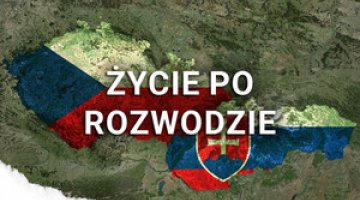Czech presidential election: change on the horizon

Miloš Zeman will complete his second presidential term in March 2023. He will be replaced by one of eight candidates who will face off in the January elections. The first round of voting will take place on 13–14 January, with a second round on 27–28 January very likely. Among the contenders, three favourites stand out: two figures from outside politics will face ex-Prime Minister Andrej Babiš (ANO) – General Petr Pavel, the former chairman of the NATO Military Committee; and Danuše Nerudová, the former rector of the Mendel University in Brno and a professor of public finance. Recent polls rule out the possibility of any candidate winning in the first round. If Nerudová’s campaign does not regain momentum, the second round will almost certainly feature Pavel and Babiš, the latter of whom has a disciplined group of voters. However, the former prime minister has limited chances of success there due to his large negative electorate.
From spring, a change should be expected in the style of the presidency to one that is more restrained (compared to Zeman’s oft-criticised activism), and more clearly rooted in liberal values and a pro-Western orientation. Despite the limited formal powers of the Czech Republic’s head of state, in practice the stature of the office has so far been higher than the constitutional provisions suggest, as it has been held by people who have left the strongest impression on national politics over the past three decades. This is reflected in the considerable public interest in the January election, and in presidential elections in general.
The position of the president in the constitution and in political life
The Czech Republic has a parliamentary-cabinet system in which the President, by virtue of the Basic Law, primarily performs representative functions. Nevertheless, the practice of political life in the country demonstrates that the head of state wields significant and real influence on political and social issues, due to a number of factors rooted in history, personality and the constitution. These include the legacy of Tomáš Garrigue Masaryk, the ‘father of independent Czechoslovakia’ and the country’s first president (1918–35), who remains an undoubted authority across political divides. It is also important that, from the very beginning of the Czech Republic, this post has been held by charismatic and active individuals. The authority of Václav Havel (1993–2003) – an intellectual, former dissident and promoter of the idea of human rights – clearly transcended Czech borders. On the other hand his successor, Václav Klaus (2003–13), the first prime minister of the new Czech state after the break-up of Czechoslovakia, and a former professor of economics, was the ‘father of Czech privatisation’ and a staunch opponent of the adoption of the euro. The current head of state, Zeman, was elected in the first direct vote for president in 2013 (previously selected by parliament). Like Klaus, Zeman had served as prime minister before taking the top office; and like him, he was a highly controversial figure in the national public debate.
The last two leaders sometimes took advantage of the vagueness of the constitution and the fragmentation of the political scene to push through policies in line with their own vision. Zeman, for example, allowed Babiš’s minority cabinet to rule for more than seven months without winning a vote of confidence (2017–18), and for six months even had his own de facto cabinet (formally led by Jiří Rusnok) despite lacking support in the Chamber of Deputies (2013–14). He also forced changes in ministerial appointments in Bohuslav Sobotka’s government. By using his exclusive power to appoint the Governor of the Czech National Bank (ČNB) and the members of the ČNB Bank Board (the equivalent of the Monetary Policy Council), he exerted a key influence in halting interest rate rises in the middle of last year. However, the president’s position in the legislative process is noticeably weaker than that of, for example, his Polish counterpart: he cannot propose legislation, and a statutory majority of parliamentary votes is sufficient to override his veto.
The presidency in the Czech Republic is also characterised by the expectation of an overwhelming majority of citizens (as seen in regular polls by the STEM agency) for the head of state to be non-partisan. This has resulted in a large number of non-political candidates for the office in direct elections so far. As a result, parties generally hold back their endorsements for long periods, while contenders often accept them without enthusiasm, and even highlight their reservations about the groups supporting them. This was the case with the three centre-right factions which form the core of the governing coalition (the right-wing ODS, the Christian Democrats and the liberal TOP 09, running together as Spolu), which postponed selecting ‘their’ candidates until they ended up supporting the three most popular runners (according to the polls) among their electorate, namely Pavel, Nerudová and senator Pavel Fischer. Their partner in government, the Czech Pirate Party, also threw their weight behind the top two, while additionally endorsing senator Marek Hilšer. The last grouping in the coalition, the scandal-ridden centrist STAN party, chose not to support anyone. There will also be two purely party-backed contenders in the January election: Babiš, the head of his own ANO party, and Jaroslav Bašta, an MP from the pro-Russian, anti-immigrant Freedom and Direct Democracy (SPD). These groupings were most likely concerned that supporting non-party candidates could lead to an exodus of their core voters.
The candidates and their strategies
One of the places in the second round will almost certainly go to Babiš. The former prime minister (2017–22) and leader of the ANO party (which tops the polls) can count on around 25–30% of the vote, from a reliable, disciplined electorate. His electoral strategy is based primarily on an attempt to channel the social frustrations related to economic difficulties (mass anti-government protests took place in autumn). The Czech Republic is one of the EU countries which has been hardest hit by inflation: in the third quarter of last year, the level of wages in real terms (i.e. after taking inflation into account) fell by 9% year-on-year – the highest among all OECD members. This has put the purchasing value of wages at the level of late 2017. The former prime minister was already touring the country before announcing his candidacy, and his billboard campaign under the slogan ‘Things were better under Babiš’ has generated a significant response. At meetings with voters, he portrays himself as sensitive to human injustice, and recalls the programmes of social support implemented by his cabinet, for example for pensioners, who are one of the main groups of ANO supporters. Among those aged 60+, as many as 44% of decided voters identify him as their first choice – almost double the average for society as a whole (the Data Collect/Kantar poll conducted from 2 to 5 January; see Appendix). However, the effectiveness of Babiš’s pro-social campaign has been undermined by the government’s implementation of mechanisms to mitigate the increase in the price of energy, and by the cooling off of the wave of protests.
Although ANO was part of successive cabinets from January 2014 to December 2021, the former prime minister presents himself as an anti-establishment fighter against the ‘post-November cartel’ (a reference to the parties who have most often held power since 1989). He dismisses accusations of fraud against him as ‘politically motivated’, and may be helped in his campaign by his acquittal on 9 January by the court of first instance in the years-long EU subsidy fraud case (the so-called Stork’s Nest affair). However, most of his voters had already paid little attention to the scandals associated with him; they rather support him for his managerial skills and business successes rather than his honesty. Neither are Babiš’s opponents likely to be persuaded by the court’s verdict, which is non-binding. For them he remains the embodiment of an oligarch seeking to combine political, financial and media influence.[1] Due to his considerable negative electorate, however, it will be hard for him to do well in the second round. The polls indicate that he will come off worse in any potential duel with either Pavel or Nerudová (the last three polls have shown an average lead for these two over him of around 16 pp.).
Petr Pavel is currently emerging as the favourite to win. He has never been an active politician, but has held important positions at home (Chief of the General Staff from 2012 to 2015) and abroad (Chairman of the NATO Military Committee from 2015 to 2018). His potential candidacy had been speculated about in the Czech media for years. In response to the widespread tension in society over the instability of the economic and international situation, Pavel has adopted as his main slogan the promise to restore ‘order and calm’. In his election materials, he has emphasised his military experience, introducing himself as ‘General Pavel’. In the campaign, he presents a clear pro-Western stance, supporting arms supplies to Ukraine and its entry into the EU. He also rather vaguely emphasises the need for Prague to become more active in foreign policy and reduce its energy dependence on Russia. Pavel is the clear leader among citizens with tertiary education (40%) and among residents of the capital (39%). However, back in the early stages of the campaign, he had to fend off accusations about his early career in the army: after graduating from military studies (in 1983), he joined the Czechoslovak Communist Party and even chaired one of its cells (according to one surviving testimony, he “helped push the party line among his subordinates”). He later participated in a training course for military intelligence officers, although he started his service in the army after the democratic transformation. He has acknowledged his activity in the party as a mistake, and argues that his later years prove that he has duly made amends.
Pavel’s primary competitor for the second round is Nerudová, who, thanks to a skilful campaign – which has also benefited from the generous support of business sponsors – has gone from being relatively unknown in national public life to one of the pre-election favourites. Her candidacy appears to be an attempt to capitalise on the support enjoyed in the Czech Republic by the Slovak president Zuzana Čaputová (with a trust rating of 60%, she is the most popular foreign politician in the Czech Republic). Nerudová also comes from outside politics, has a similar image to Čaputová, and shares a liberal worldview with her. The former rector’s campaign, however, has been less expressive than that of the Slovak president (whose campaign centred around the issue of fighting the mafia), and has generally been based on positive associations (modernity, innovation, development), high social media activity and avoiding controversial topics. Nerudová’s message appeals primarily to the youngest voters: she tops the polls among the 18–29 age group (with 33% support). Despite the feminist themes in her campaign, however, she places only third with the female electorate (23%). In the Czech Republic – unlike any of its four neighbours or V4 partners – no woman has ever held either of the two highest state offices (head of government or president). Her surge in popularity slowed down after controversies related to her time as a university rector came to light. These included, for example, the acceleration of the granting of certain doctoral degrees, and her husband’s conflict of interest (in the past, as his law firm carried out contracts for the university, and potentially in the future). Pavel and Nerudová’s rivalry for the second round has meant that their camps have focused their attention on pointing out the shortcomings and controversies surrounding their direct competitor rather than targeting Babiš.
Of the remaining candidates, three are polling between 3–8%, and the votes cast for them in the next round of elections will most likely be transferred to either Pavel (possibly Nerudová) or Babiš. The first group is made up of Senators Fischer and Hilšer. Fischer is a pro-Atlantic former advisor to Havel who stands out from his competitors for his conservative world view on moral issues. He came third five years ago (when more than 10% of Czechs voted for him), but expects a weaker result now. Hilšer is also doing worse than in the previous election, polling less than half of the almost 9% support he received then. The latter, who in a way is standing in opposition to General Pavel, promotes himself as ‘citizen Hilšer’ and at the same time – in his guise as a social activist – presents himself as a defender of ordinary citizens against the ‘arrogance of the oligarchs who are appropriating the state’. Babiš, on the other hand, is probably counting in the second round on getting the votes cast for Jaroslav Bašta, the candidate of the extreme right and the harshest critic of the government. With the former prime minister absent from most debates (he only took part in one, on the eve of the election), Bašta has seen his support rise in recent weeks. This has not escaped the attention of Babiš, who recently started calling on Czechs not to waste the votes they want to cast against the ‘government candidates’.
Outlook
The new president will face the task of rebuilding the image of the head of state as someone who can stand above the political divide. Zeman is finishing his term with one of the worst public trust scores in a decade in office: only 33% of citizens trust him and as many as 65% of respondents declare distrust in his actions (according to a poll from CVVM in November 2022). The consensual statements made by General Pavel, the favourite for the election, seem to meet the requirements of the Czech people. He promises to be a leader “independent of political parties, domestic and foreign capital, interest groups and influential personalities”, although he has not shied away from accepting lavish donations from representatives of businesses which depend on state regulation. One might expect that on many issues his foreign policy vision would support and complement the government line (he admits that he voted for the centre-right Spolu coalition in the parliamentary elections). General Pavel may wish to capitalise on his defence credentials and involve the presidential office more strongly in the support for Ukraine. The candidate’s sharply critical view of the prospects for Visegrad cooperation is noteworthy: he has spoken of the V4’s loss of credibility and relevance, as well as its significant differences on such fundamental issues as attitude to Russia. He has conceded that a discussion could be held about expanding the group, or the Czech Republic leaving it. His entourage includes people who are close to a pro-Atlantic political vision and liberal economic policy. The retired military officer has also declared his liberal approach to social issues: for example, he supports the adoption of children by homosexual couples and the introduction of euthanasia.
A similar vision and model of the presidency may be expected from Nerudová. In her message, however, she distributes the emphases somewhat differently from Pavel: she stresses that she wants the Czech Republic to be a ‘modern Western society’, and that its economy should be based on high added value. Like her rival, one would also expect her to move away from Zeman’s undermining the government’s line on foreign affairs, characteristic of his tenure (although in recent months he has eased off on his pro-Russian and pro-China statements). The former rector of Mendel University has announced outright that she wants a country in which “the president and the government finally pursue a unified foreign policy after many years”. In this dimension, one of the two pillars for her – along with strengthening transatlantic ties – will be concern for good relations with her country’s neighbours. However, her lack of political experience makes the eventual shape of her presidency uncertain – as with Pavel. The national media have speculated about which interest groups may covertly be working behind both of them, and these doubts have been fuelled by Babiš, who stresses that he is the only person financing his campaign.
Babiš, especially in the last years of his time as prime minister, favoured high public-spending policies. In foreign affairs, on the other hand, he was often evasive, as he did not want to jeopardise his tactical alliance with the President on the one hand, or to stand out negatively from his EU or NATO partners on the other.[2] Of the three figures mentioned above, he is closest to Zeman (who, by the way, repeatedly encouraged him to run and openly supported him in this election), but the head of ANO has pointed out that they had differing views on some issues. Given Babiš’s political career to date, one would expect him to stick to the EU and NATO mainstream regarding support for Kyiv. However, due to the competition for anti-establishment voters, he has avoided making statements on the subject, and Bašta, who is competing with him for this group, has recalled that the ANO party supported the training of Ukrainian soldiers on Czech territory. Although he has repeatedly stressed the importance of cooperation within Visegrad, in practice the V4 format has helped him to highlight topics popular with his electorate, such as the fight against illegal migration. He underlined this commitment with his demonstrative friendship with Hungarian prime minister Viktor Orbán. At the same time, he tried to balance it by maintaining a close relationship with the French President Emmanuel Macron, who received the former prime minister at the Élysée Palace a few days before the election. Their parties belong to the European Parliamentary Renew Europe group, and Babiš has made no secret of his personal sympathies for France. Nevertheless, many opinion-forming circles in the Czech Republic took the gesture as interference by Paris in the electoral process.
APPENDIX
Chart 1. Support for individual candidates in the presidential election (latest polls)

Source: author’s study based on electoral models.
Chart 2. Potential second-round runoffs (latest polls)

Source: author’s study based on electoral models.
[1] For more details, see K. Dębiec, ‘The Bohemianisation of the media. The acquisition of the Czech media sector by local billionaires‘, OSW Commentary, no. 378, 11 February 2021, osw.waw.pl.
[2] For details, see K. Dębiec, ‘A crisis in the Czech Republic’s relations with China and Russia‘, OSW, 2 October 2019, osw.waw.pl.





